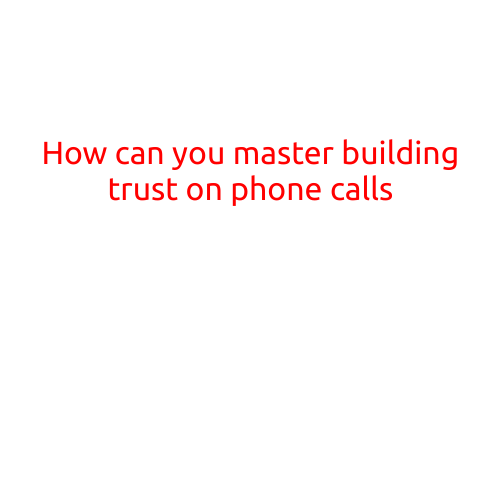
How Can You Master Handling Different Call Types?
As a customer service representative, handling different call types is an essential part of your job. Whether it’s a complaint, a query, or an issue, each call requires a unique approach to resolve the issue efficiently and effectively. Mastering the art of handling different call types is crucial to providing excellent customer service and achieving your goals.
In this article, we’ll explore the different call types you may encounter, and provide tips on how to master handling each one.
Understanding Different Call Types
Before we dive into the tips, let’s identify the common call types you may encounter:
- Complaint Calls: These calls involve customers expressing dissatisfaction with a product or service.
- Query Calls: These calls involve customers seeking information about a product or service.
- Technical Support Calls: These calls require customers to troubleshoot issues with a product or service.
- Order Calls: These calls involve customers placing an order or requesting changes to an existing order.
- Friendly Calls: These calls involve customers simply calling to ask a question or seek advice.
Tips for Mastering Handling Different Call Types
Now that we’ve identified the different call types, let’s provide some tips for mastering each one:
Complaint Calls
- Listen actively to the customer’s concerns and acknowledge their emotions.
- Use empathetic language to show understanding and apologize for any inconvenience.
- Focus on the solution, not the problem, by working with the customer to find a resolution.
- Offer a compromise or a solution that meets the customer’s needs.
Query Calls
- Ask clarifying questions to ensure you understand the customer’s query.
- Provide clear and concise information, avoiding jargon or technical terms.
- Use positive language to build confidence and trust with the customer.
- Offer additional information or resources to help the customer make an informed decision.
Technical Support Calls
- Ask open-ended questions to troubleshoot the issue and gather more information.
- Use technical language that’s relevant to the customer’s issue, but avoid overwhelming them.
- Prioritize the customer’s issue by addressing the most critical part of the problem first.
- Offer a resolution, a workaround, or a plan to escalate the issue to a higher-level support team.
Order Calls
- Confirm the customer’s order details to ensure accuracy.
- Answer any questions the customer may have about the order, such as delivery times or product details.
- Offer assistance with any changes or cancellations, if necessary.
- Ensure the customer understands the order process and what to expect.
Friendly Calls
- Use positive and friendly language to build rapport with the customer.
- Ask open-ended questions to engage the customer and build a connection.
- Offer helpful advice or suggestions that are relevant to the customer’s interests or needs.
- End the call with a positive note, such as a thank you for calling or an offer to help in the future.
Conclusion
Mastering handling different call types requires a combination of active listening, empathy, and effective communication. By understanding the different types of calls you may encounter and using the tips provided in this article, you’ll be well-equipped to handle any situation that arises. Remember to stay calm, patient, and professional, and always put the customer’s needs first.





